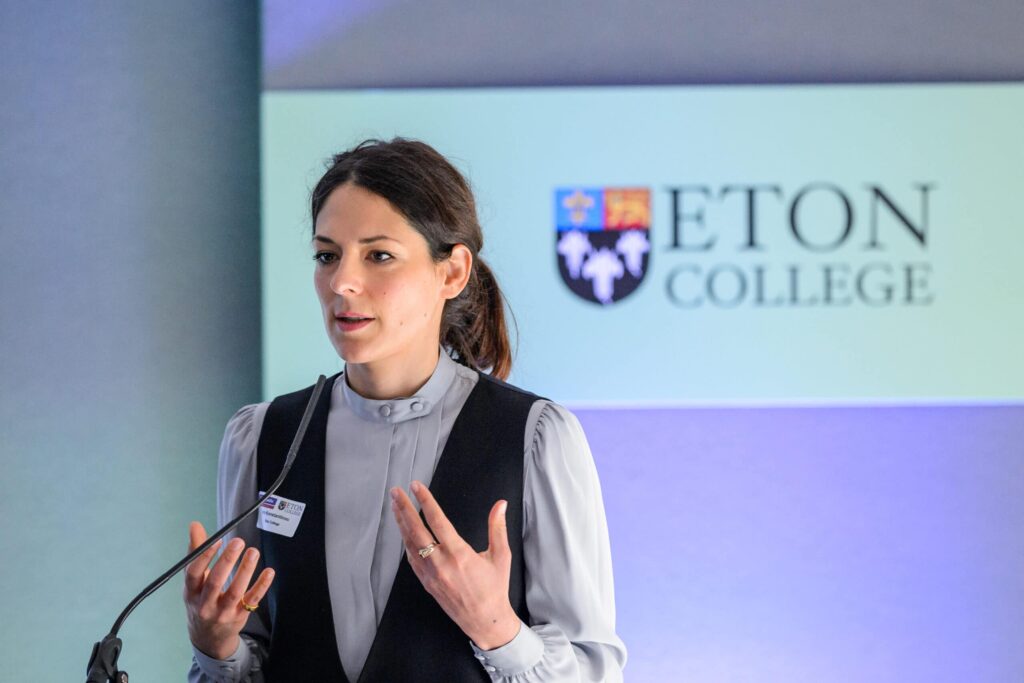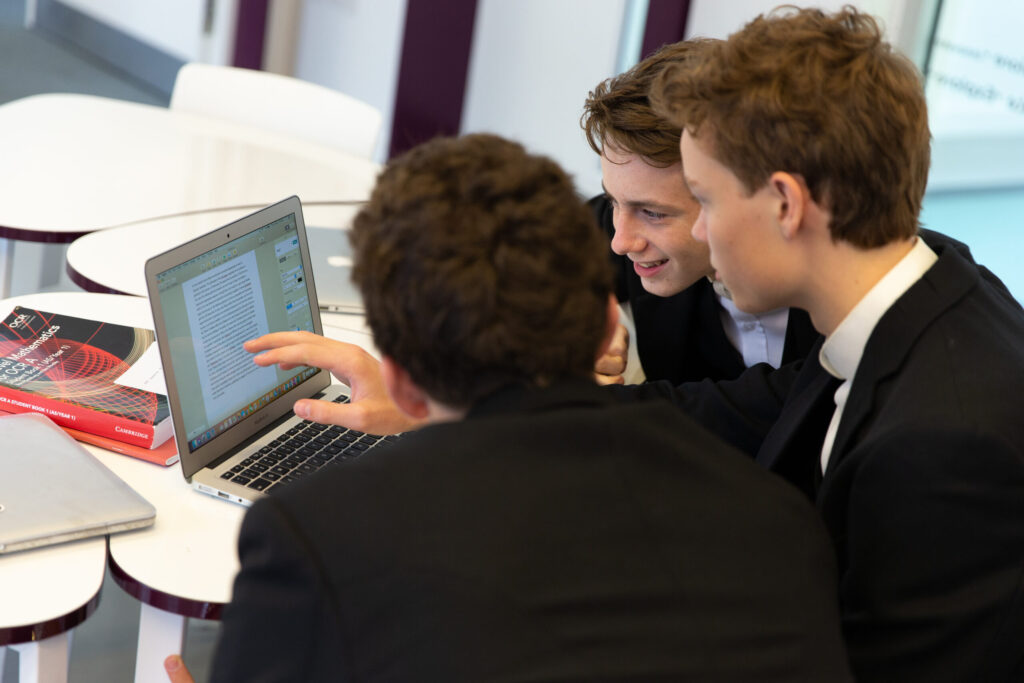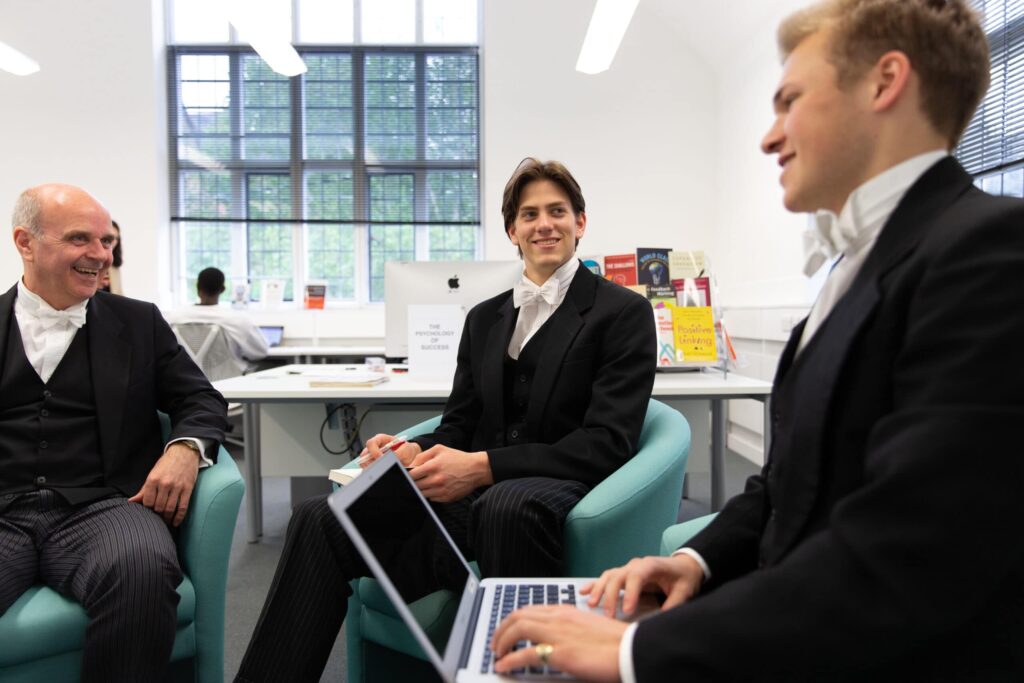Our resources include a wide range of talks, professional development workshops, materials you can use and opportunities for collaboration. Here you can find links to all the available resources and ways you can get involved with our professional development workshops.
Professional development courses
Our professional development course ‘Action Research in Schools’ launched in 2023. This course equips you with comprehensive guidance on completing your individual action research project and engaging in self-reflection within your teaching practice. You can sign up to the self-study option, or look out for the hybrid version which runs once a year. Register here.
Our professional development course ‘Evidence-informed approaches to education’ consists of 6 self-paced half-hour sessions focusing on vital topics for secondary school teachers, including developing resilience in students, improving academic engagement, how character education can promote wellbeing and what we know about how Generation Z learns. Register here.
Our professional-development course ‘Character education in the classroom’ covers how to teach gratitude, motivation, self-efficacy, academic resilience, creativity and foster zest for learning. We look at ways of strengthening social connectedness and how to assess character interventions. Register here.
Study Skills and Habits Guidebook
Our comprehensive guidebook offers a range of techniques and evidence-informed practices aimed at nurturing both academic excellence and character development among students. These resources are designed to be applicable and beneficial for students spanning from Year 9 through Year 13, focusing on the cultivation of effective study skills and habits essential for lifelong learning and achievement in their academic endeavours.
Access the guidebook here
Artificial Intelligence prompts for students and teachers
Conversational AIs, like OpenAI’s ChatGPT, Microsoft’s Copilot and Google’s Bard, take a
prompt written by a user and generate some text as the output. If you want to utilise this function, you can download our guides below, which provide ideas for prompts.
Professional development webinars
Daisy Christodoulou on ‘Can AI improve assessment?’
Daisy Christodoulou discusses what works and what doesn’t in using AI to improve assessment
Will van Reyk on ‘AI Made Simple’
Will van Reyk discusses how teachers can use AI in their day-to-day work
Tom Bennett on ‘How do I build relationships with my classes?’
Tom Bennett discusses building relationships with classes
Amarbeer Singh Gill on ‘Why are students so bad at learning?’
Amarbeer Singh Gill discusses why students are so bad at learning
MindSpark on Self-Regulated Learning and Executive Functions
Belinda Edington discusses how a whole-school approach integrating self-regulated learning and executive functions (EFs) can enhance education.
Wayne Harris on inclusive attendance
Wayne discusses inclusive attendance.
Peps Mccrea on the science of motivation
Peps discusses what the science of motivation says about learning.
Patricia Riddell on neuroscience for teachers
Professor Riddell covers what we know about the brain in teaching and learning.
Jade Pearce on what every teacher needs to know
Jade covers what she believes every teacher needs to know about evidence-informed practice.
Brad Busch on questions
Brad Busch shows how to use research to maximise the use of questions in the classroom.
Kate Jones on formative assessment strategies
Kate Jones shares a range of evidence based classroom strategies for assessment.
Kenny Primrose on screen time
Kenny Primrose discusses the link between screen time and mental health.
Dyedra Morrissey on study skills for university
This talk gives an overview of the fundamental Study Skills students need to succeed at university, such as time management, motivation, and goal setting strategies.
Vanessa Kurdi on empathy
This talk offers an overview of empathy and its usefulness in the classroom, exercises to understand its impact, and information on how to listen and demonstrate empathy towards students.
Briggy Kiddle and Alex Haydock-Wilson on emotional agility
Briggy and Alex focus on the importance of emotional agility for young people, so they can make good decisions in the moment.
Christine Cunniffe on transforming school culture
The talk examines the downside of traditional observation practices and details a refreshing three-stage approach which can have significant positive impact on school culture.
Alex Quigley on why literacy is the key priority
Alex explores some of the current issues related to the Covid pandemic, along with the long-term challenges every pupil faces in accessing the curriculum and going on to flourish in school and beyond. He makes the case for literacy being central to school improvement, now and in the future.
John Taylor on project-based learning
The talk provides an overview of some of the relevant research literature and articulates a model for project based learning.
Paul Redford on developing confidence, motivation, competence
This talk focuses on recent psychological learning and teaching research focused on increasing motivation, confidence and competence.
David Weston on school improvement
David Weston explores how the most successful schools prioritise effective collaboration, communication and development.
Ian Warwick on independent learning
A workshop with Ian Warwick which offers practical strategies on how to stress the big ideas and concepts, how not to become ambulatory google, how to give feedback on best work only, how not to reward ‘second best’ student endeavours and how to work with students to offer more effective peer feedback.
Ian Warwick talk from Eton College on Vimeo.
Stuart Kime on the science of learning
Stuart discusses some key research findings presented in the Great Teaching Toolkit Evidence Review. These findings suggest that elements of effective classroom practice can be enhanced by teachers knowing more about how pupils learn and applying this knowledge in the classroom; addressing this, Stuart identifies and discusses a handful of key ideas informed by research in cognitive psychology and cognitive neuroscience, and explain why he thinks teachers should know about them.
Stuart Kime on the science of learning from Eton College on Vimeo.
John Perry on stress management
John Perry discusses what educators, parents, and students can do to manage stress and stay positive during challenging situations.
stress from Eton College on Vimeo.
Kathy Weston on resilience
Dr Weston presents practical strategies for building resilience in young children and teenagers. The strategies can be applied in the classroom and in family settings.
Family resilience COVID talk Eton Presentation from Eton College on Vimeo.
Elke Edwards on human development
Elke Edwards provides practical strategies of how teachers and headteachers can place human development at the heart of education.
Elke Edwards from Eton College on Vimeo.
Mark Samways on well-being
During this talk, Mark will explore the rhetoric around positive education and discuss the opportunity for schools to seize upon the global focus on wellbeing.
Rose Luckin on Artificial Intelligence and education
Professor Luckin shows how we can reap the most benefit from AI for teaching and learning and how schools and educators can become ‘AI Ready’
Geoff Petty on evidence based teaching methods
Geoff Petty provides practical evidence based teaching strategies for teachers.




